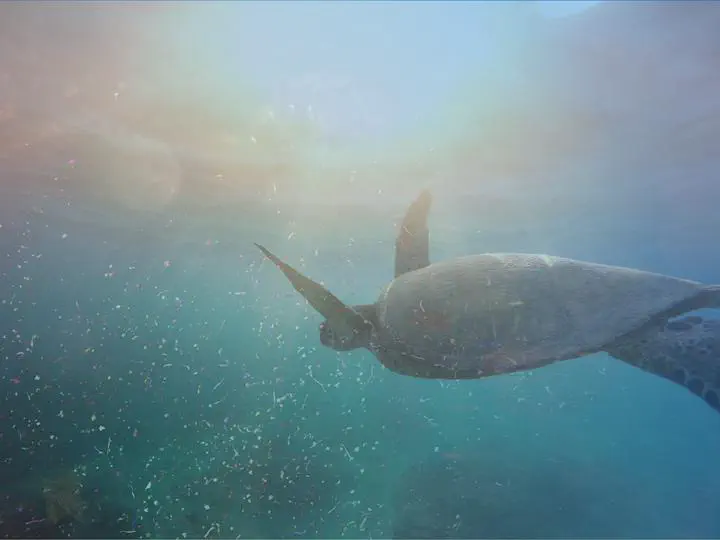Marine megafauna as human health proxies

Microplastics may impact human health in subtle and profound ways that are difficult to study, especially as their global prevalence means they impact effectively all people. We can, however, examine the sublethal effects of microplastics in animals and animal populations, considering them as surrogates. We focus on marine megafauna and the ocean as a global laboratory because these animals and ecosystems have ubiquitous plastic loads that are in some ways better understood than our own. By focusing on how microplastics compound with other stressors, such as thermal stress, to impact marine animal health we can predict subtle health outcomes in human populations, especially those experiencing extreme heat conditions. This work highlights crucial connections between plastic pollution and wellbeing, ultimately empowering change in human communities.
This initiative is currently seeking funding! Interested parties can reach out to us via email, Instagram, or Bluesky!